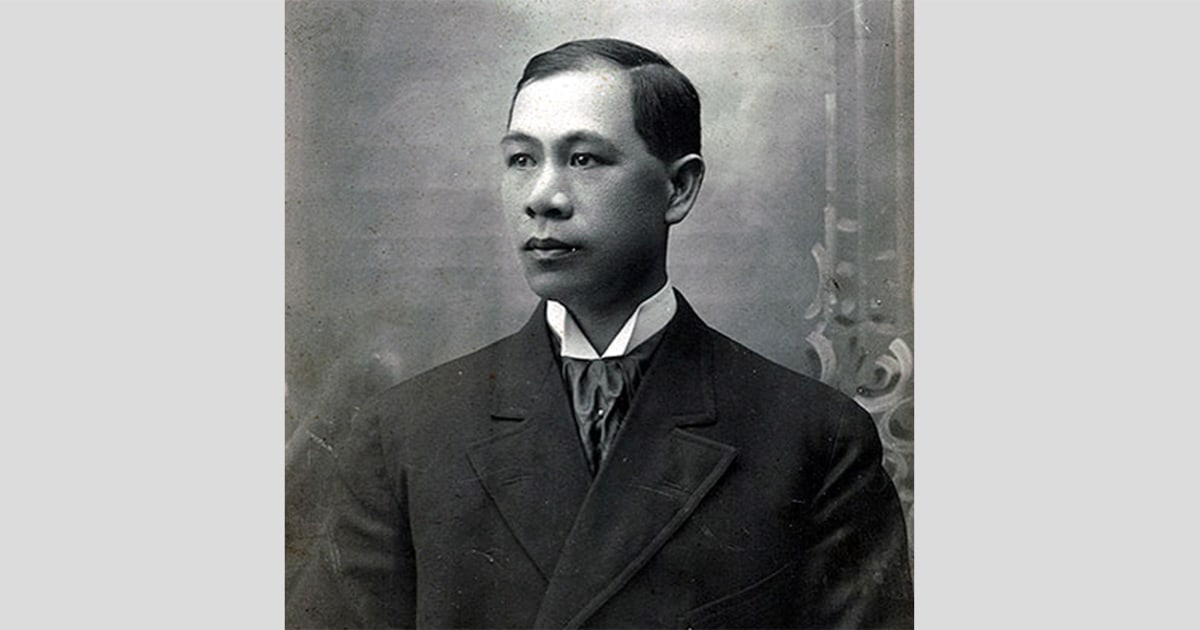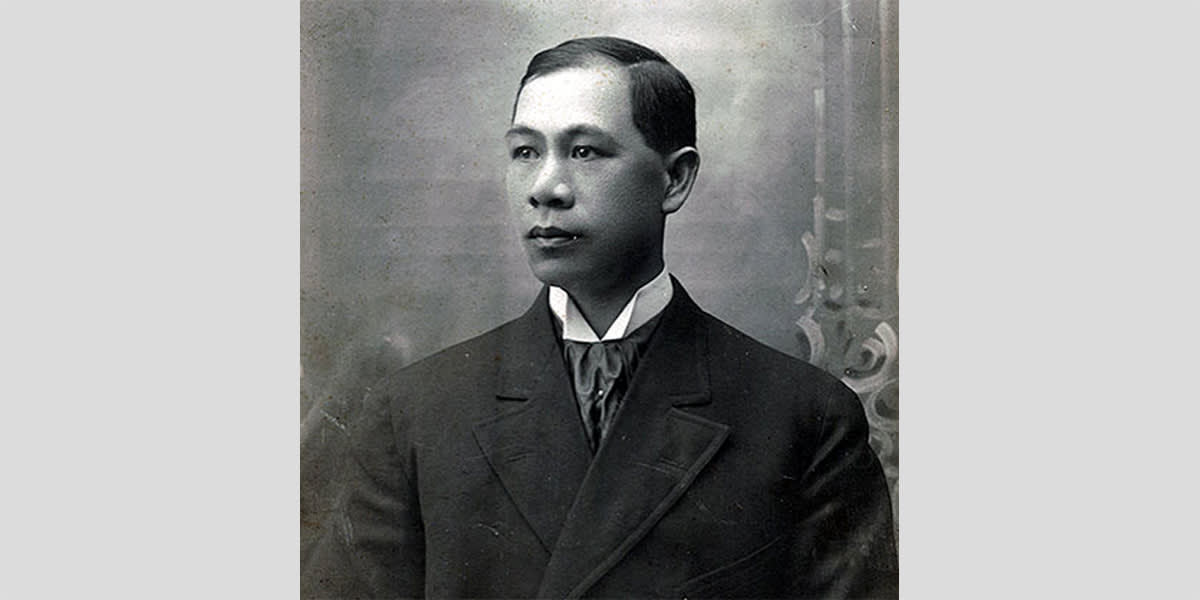
Columbia Law School has honored Hong Yen Chang, a trailblazing Chinese immigrant who carved out a career in the legal field during a time when those of Chinese descent experienced rampant discrimination and were unwelcome in the U.S.
The law school announced this month that its Center for Chinese Legal Studies will be named for Chang, who not only made history in 1886 as the school’s first Chinese graduate but also went on to become the first Chinese American to be admitted as a lawyer in the country. He did so during a period of labor unrest and fears about the loss of white racial purity in the country, which led to discriminatory legislation like the Chinese Exclusion Act, experts say.
Gabriel J. Chin, a professor at the University of California, Davis School of Law who helped lead the charge to posthumously admit Chang to the State Bar of California — which once banned him — said there is no doubt that the announcement is significant.
“It is remarkable that someone who was once excluded from participation in mainstream society will now have his name on a building,” Chin said. “This is an important recognition of the long history of Asians and other people of color in the United States.”
Beginning Friday, the center will be known as the Hong Yen Chang Center for Chinese Legal Studies, the school said in a statement.
Chang’s great-grandniece Rachelle Chong, who made history herself as the first Asian American appointed to both the Federal Communications Commission and the California Public Utilities Commission, thanked the school in the statement, calling the decision an “unexpected and enormous honor.”
“Without question, Hong Yen Chang would have been delighted that the center would bear his name, as he spent most of his life bringing together American and Chinese lawyers, diplomats, politicians, and businesspeople in the furtherance of mutual understanding and peaceful interaction,” Chong said.
Chang’s achievements did not come without significant setbacks, with the anti-Chinese racial climate of the U.S. at the time largely to blame. Chang, who was born in the Chinese province of Guangdong, came to the U.S. in 1872 as part of the Chinese Educational Mission, a program for academically gifted Chinese boys.
He attended Yale University before enrolling at Columbia Law School, where he graduated with high honors. But Chang’s race became particularly contentious as he sought to gain admission to the New York State Bar Association, a two-year pursuit.
Initially, a New York court rejected Chang’s application on the grounds that he was not a citizen, but he continued to push for admission. In 1887, the New York Court of Common Pleas issued him a naturalization certificate. The state Legislature also enacted a law permitting him to reapply to the bar. His eventual admission made him a trailblazer.
Chang did not have such luck in California, however, where he planned to serve the Chinese American community in San Francisco. His attempt to gain admission to the state bar was shut down by the state Supreme Court, which denied him on the basis of the Exclusion Act.
Chin said contrasting racial environments of New York and California were likely to have contributed to the differing outcomes. New York, he said, was less hostile to Asian immigrants; it never prohibited people of color from marrying whites, did not segregate schools by law and did not deny Asians the right to own land.
“As a Chinese student at Yale and Columbia Law, Chang was privileged because of his wealthy and powerful classmates and discriminated against because of his race. He had friends who were able to get a law passed in New York allowing him into the bar even though noncitizens were generally excluded. As far as I know, his story is unique,” Chin said. “But his class privilege went only so far. He had powerful friends in California, too, but anti-Asian bias was more intense.”
Chin said California and other Western states at the time encouraged whites and European immigrants to settle there, discouraging people of color, including Black and Indigenous people and Asian Americans, from moving out West.
He said that not only was the Exclusion Act implemented on a federal level, but that those states also invoked their own range of techniques to welcome foreign immigrants and internal migration of whites and discourage people of color. And although many of those states allowed women to vote and enjoy other relative freedoms, encouraging white women to move out West, they also passed broad anti-miscegenation laws.
“Many of these states leveraged the federal prohibition on naturalization of nonwhites to prohibit ‘aliens ineligible to citizenship’ from owning land or holding certain jobs or licenses,” Chin said. “White noncitizens could vote, own land, homestead under federal law and otherwise integrate the very day they got off the boat if they started the naturalization process. By contrast, Asian immigrants were permanently excluded because they could not naturalize.”
Thus, Chang was never able to practice law in California; however, he did establish a career in foreign policy, joining the Chinese Diplomatic Service. At other times, he was also a banker, and he later taught trainees of the Chinese navy in Berkeley. He died in 1926.
Because of the work of the UC Davis School of Law’s Asian Pacific American Law Students Association, advised by Chin, Chang was finally admitted to the California State Bar in 2015. While the racial climate of the U.S. has evolved since Chang’s lifetime, Chin said, parallels persist.
“On the one hand, 2020 is a world away from 1890. Asian immigrants can naturalize, hold office, become professionals, own property and vote — all things denied to many or most Asians in 1890,” he said. “On the other hand, in 2020, as we see from the racism over the coronavirus, we still have to live with the tiresome fact that Asian Americans are treated as perpetual foreigners and by the type of person who yells racist epithets out of moving car windows.”
He added: “As in 1890, in 2020 we are still, unbelievably, debating whether this is a white country, and some significant number of Americans want to reduce legal immigration because of spurious racial and cultural concerns.”
Yet Chang’s story is a reminder of the contributions from immigrants around the world.
“There is a bittersweet quality to Chang’s story — in his lifetime, he did not get to practice law in California or to be a citizen in the eyes of the law,” Chin said. “But he had the traditional American quality of being a fighter for what he thought was right, of getting knocked down and then getting back up, and 130 years later, his resilience was inspiring enough to lead to this remarkable gift to Columbia.”
Source: | This article originally belongs to Nbcnews.com










